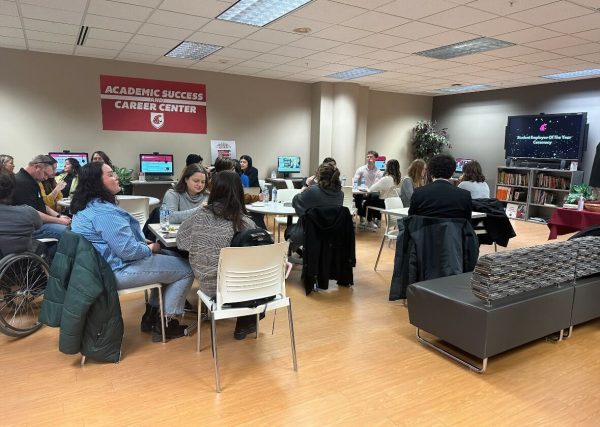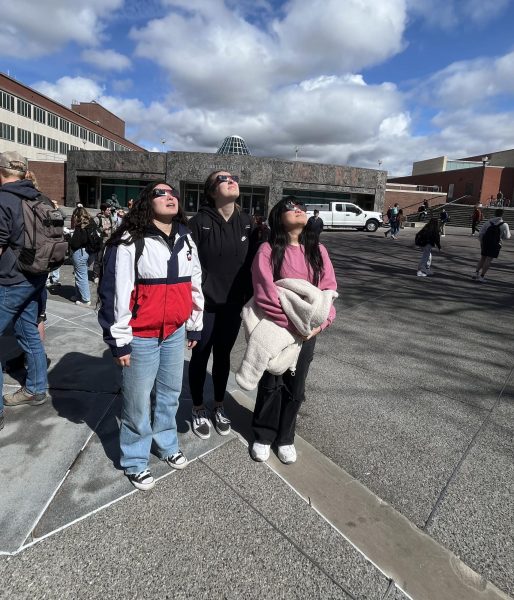Chuck Pezeshki: Not your traditional teacher
February 28, 2014
To mechanical engineering professor Chuck Pezeshki, the secret to a successful classroom is high responsibility.
“I really believe in trusting the students,” Pezeshki said.
Pezeshki teaches the mechanical engineering capstone class, which is an industrial design class where students are put into teams and given a real-world commission by an outside company. He said he believes in high levels of accountability for his students, and they must complete their work to the specifications of the project.
“Grades are not what matter in this class,” he said. “You have to get it done, or you don’t graduate.”
For his innovative teaching style in this class, Pezeshki was recently awarded the Sahlin Faculty Excellence Award for Instruction.
Part of the reason he was inspired to create a high-performance and empowering environment was because he wanted the respect of his students and to have a positive relationship with them.
“I can’t imagine walking into a classroom where all the students are half asleep and they hate me,” he said.
Stephanie Smolinski, senior mechanical engineering major and student in the industrial design clinic, said it’s clear he enjoys the class and cares about his students.
She said Pezeshki expresses his personality and gives the students a range of real-world advice.
“I couldn’t ask for a better combination in a teacher,” Smolinski said.
Pezeshki has been working on the capstone class for nearly 20 years. When he took charge of it, the class was lacking energy and needed to be vitalized, he said. He brought in three professional design projects initially, but the program was not being paid for them, and each project failed.
“The companies, because they didn’t have any money involved, wouldn’t get back to the students. The students were all fired up,” he said.
The class turned around when Pezeshki was contacted by an alumnus who worked as the chief engineer at BP. He contacted Pezeshki for a project and insisted on paying for the work.
“I had the same mindset as everyone else, ‘Oh, trust the students to get things done? I don’t know if I can do that,’” Pezeshki said.
With the financial backing providing motivation, the project was a rousing success and the program has only grown since then.
Now, the professional projects students work on bring in more than $200 thousand a year. Some of this money goes to charity work, Pezeshki said. One such project is a mechanical ankle for someone in Sierra Leone.
Helping others who rely on the projects is one way Pezeshki motivates students to success, he said.
“If you get outside of yourself and do something that is of benefit to others, then all the rest of the stuff is going to get taken care of,” he said. “You’re going to be successful in your career. You’re going to be successful in your personal relationships because it’s not going to be all about you. So my job is to help them get there.”
Allison Dulin, a senior mechanical engineering major and one of Pezeshki’s current students, said his main concern in the capstone class is to impart life skills to his students and help them get and maintain a job after graduation.
“His lectures are less like the typical calculation based engineering lectures and more about giving us career advice,” Dulin said.
Dulin is currently working on a project for Microsoft.
Now, Pezeshki said he teaches between 65 and 70 students a year and respects his students very much.
“The program continues not because of me. The program continues because students come in there and kick butt every semester,” Pezeshki said. “That’s not being humble, that’s the truth.”
*Updated to correct an incorrect monetary amount.





















